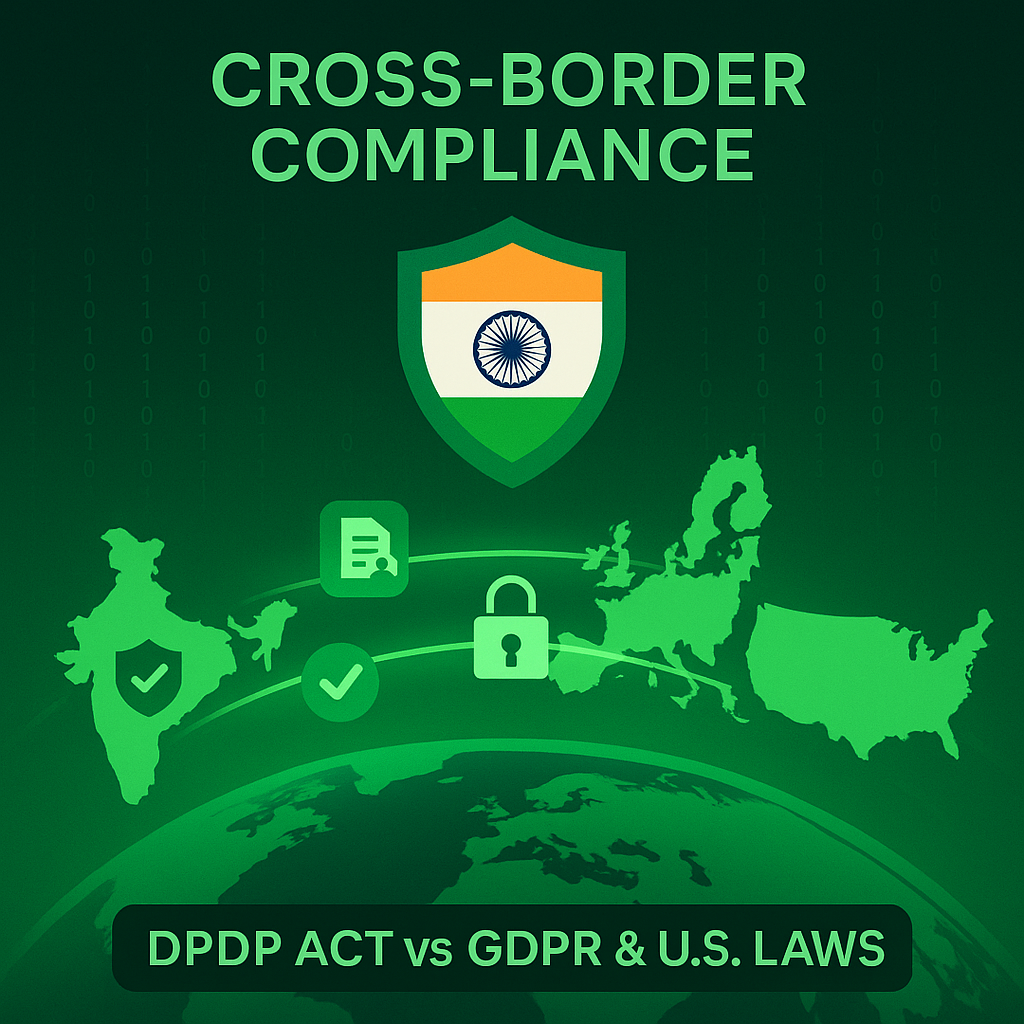Data Protection Act India is the country’s most comprehensive privacy legislation to date. Officially titled the Digital Personal Data Protection Act, 2023 (DPDP Act), this law reshapes how digital personal data is handled, emphasizing informed consent, strict user rights, and severe penalties for non-compliance.
But how does the Data Protection Act India compare with the European Union’s GDPR and the California Consumer Privacy Act (CCPA/CPRA)? For any global business processing Indian data, this comparison is not optional—it’s essential.
India’s Legal Privacy Timeline: From Puttaswamy to DPDP
The legal foundation of the Data Protection Act India can be traced back to the landmark ruling Puttaswamy v. Union of India judgment (2017), where the Supreme Court declared the right to privacy a fundamental right under Article 21. This sparked the push for comprehensive digital data protection, leading to several drafts and ultimately the enactment of the DPDP Act in August 2023.
What the Data Protection Act India Covers
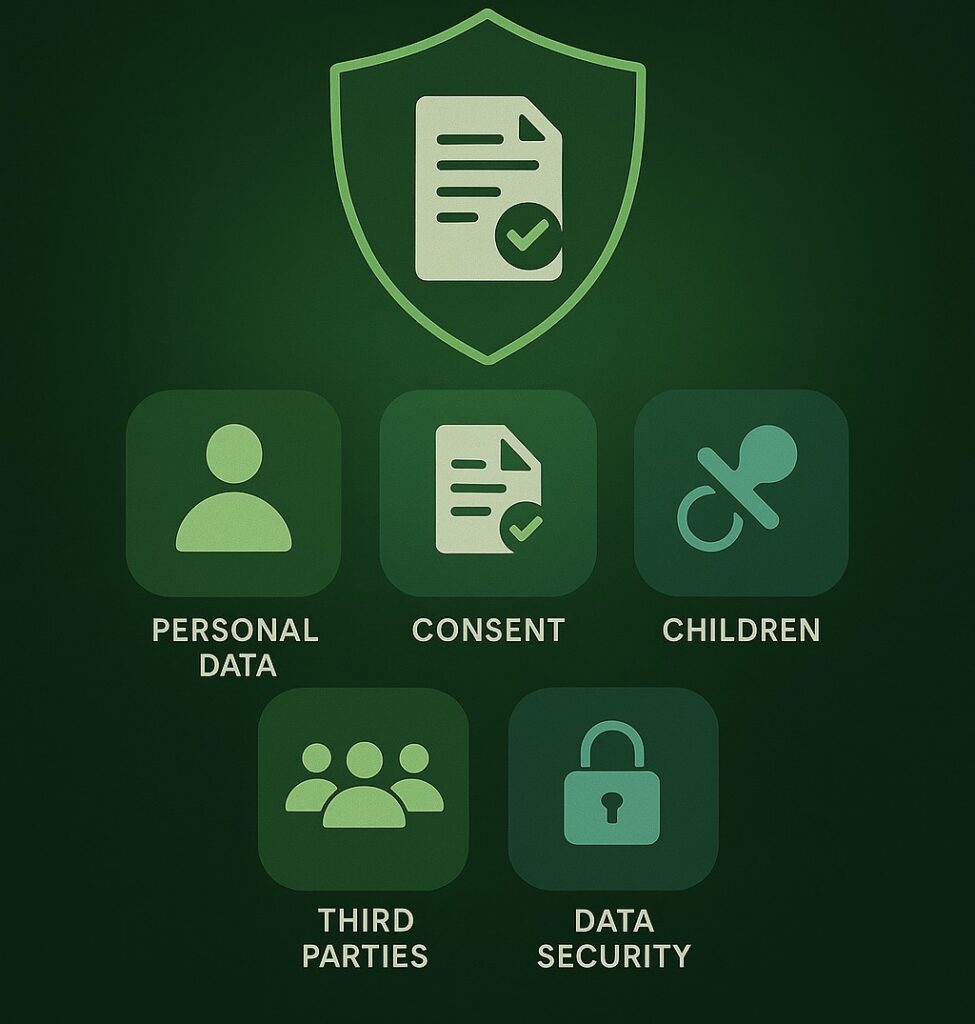
| Provision | Details |
|---|---|
| Scope | Digital personal data of Indian citizens and residents |
| Consent | Must be specific, informed, voluntary, and revocable |
| Cross-Border Transfers | Allowed to “notified” countries only |
| Enforcement Body | Data Protection Board of India |
| Penalties | Up to ₹250 crore (~$30 million USD) |
| User Rights | Access, correction, grievance redressal, erasure, and nomination rights |
Comparison Table: India vs GDPR vs U.S. Privacy Laws
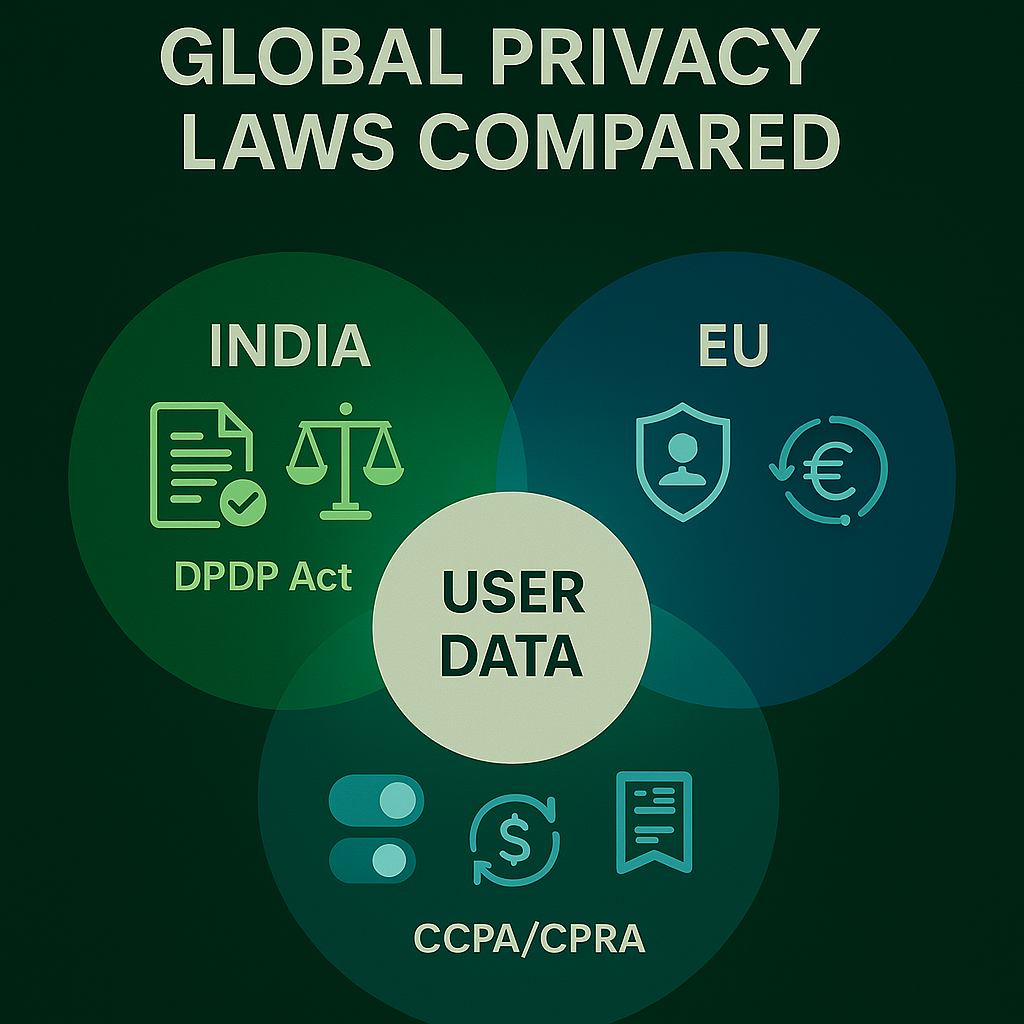
| Feature | Data Protection Act India | GDPR (EU) | CCPA/CPRA (U.S.) |
|---|---|---|---|
| Legal Basis | Consent + Notification | Consent + Legitimate Interest | Opt-out model for data sales |
| Data Subject Rights | Access, correction, grievance, erasure | Access, rectification, portability | Access, deletion, limited opt-out |
| Cross-Border Transfer | Only to “notified” countries | Only to “adequate” jurisdictions | No federal restriction; state-regulated |
| Maximum Fine | ₹250 crore (~$30M) | €20 million or 4% of turnover | $7,500 per violation |
| Enforcer | Data Protection Board of India | National Data Protection Authorities | California Attorney General |
Case Spotlight: Meta’s GDPR Fine
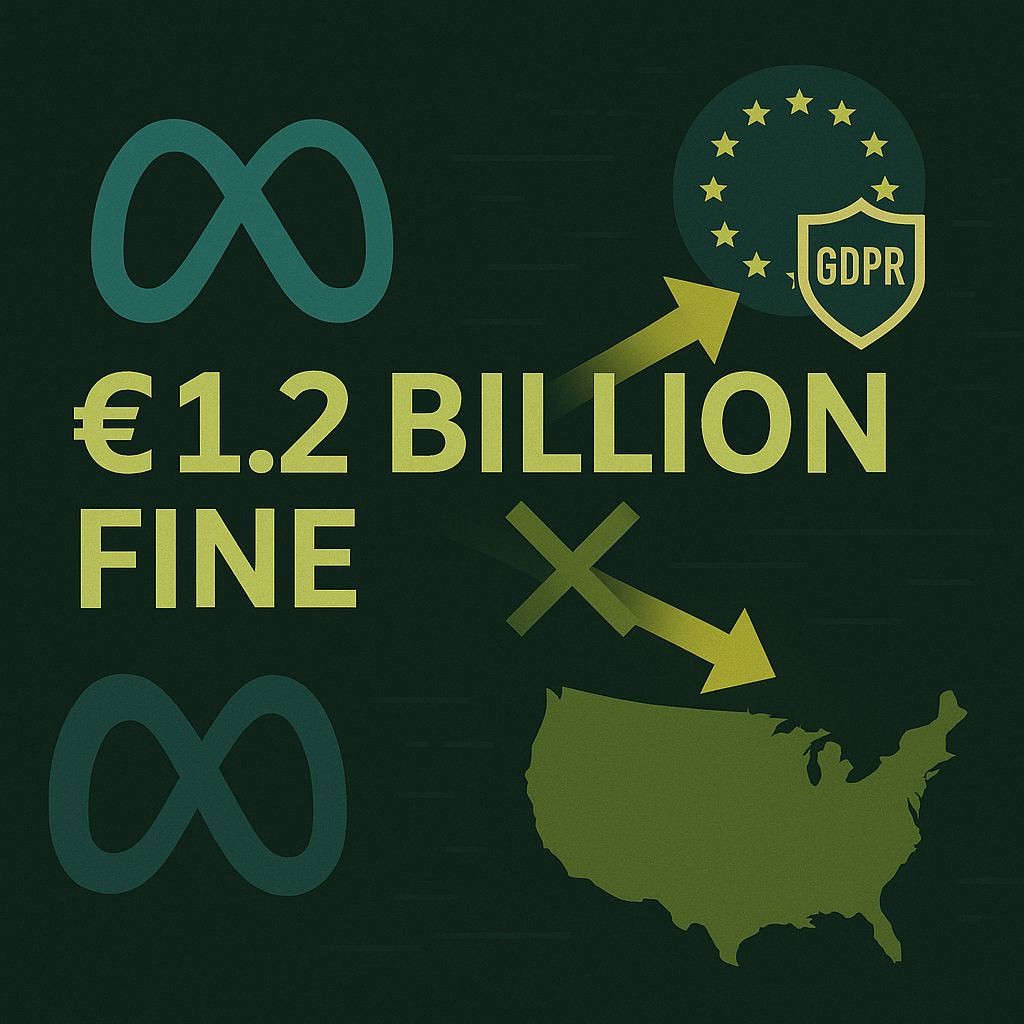
In May 2023, Meta was fined €1.2 billion by Ireland’s Data Protection Commission for transferring EU user data to U.S. servers without proper safeguards. This is the largest GDPR fine to date—and a warning sign for any company ignoring regional compliance requirements.
Cross-Border Compliance Flowchart
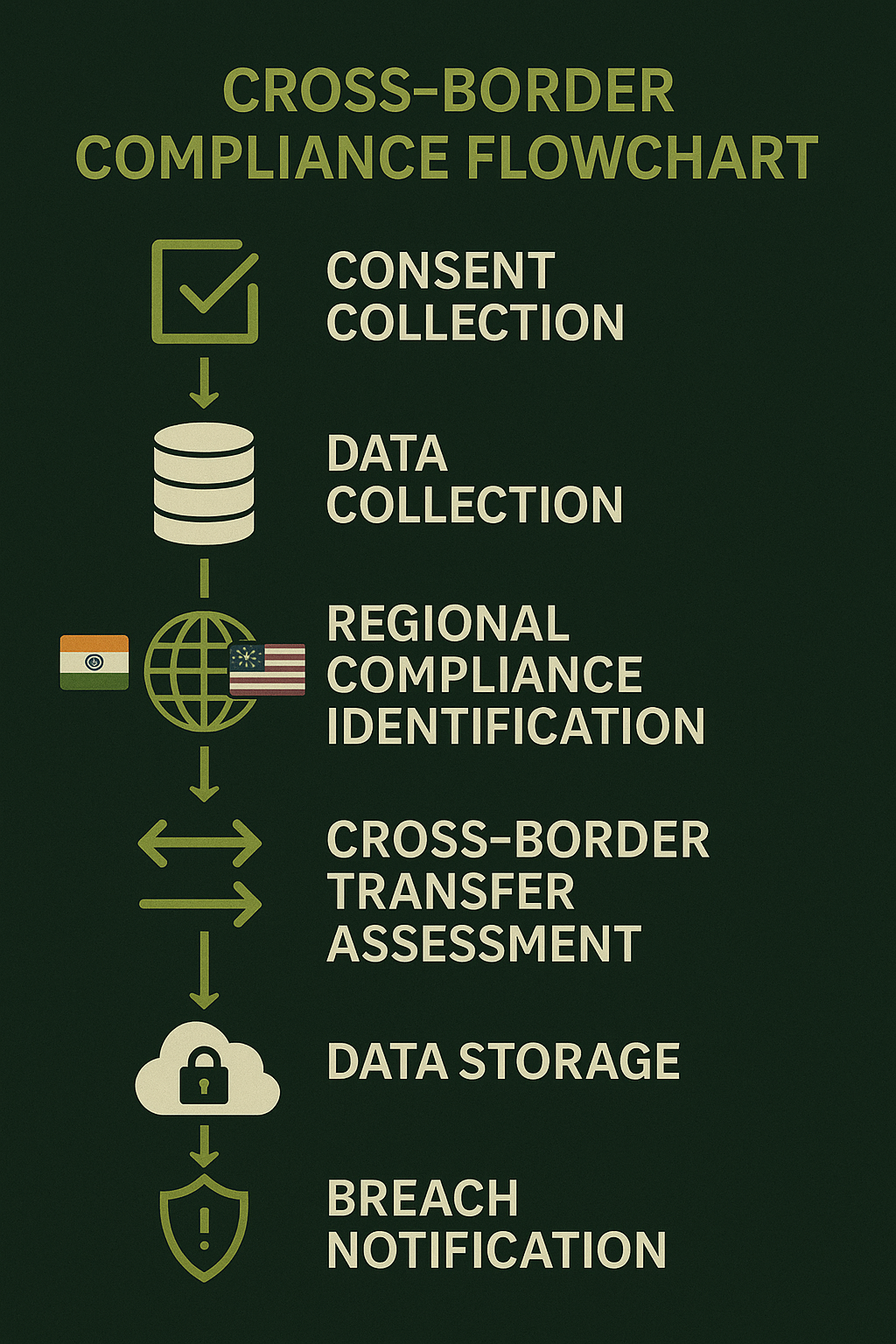
Consent → Data Collection → Regional Compliance → Transfer Assessment → Data Storage → Breach Notification
A single gap in this compliance chain can trigger violations under GDPR, DPDP, or CPRA, depending on the data subject’s location.
Why the Data Protection Act India Is Crucial Globally
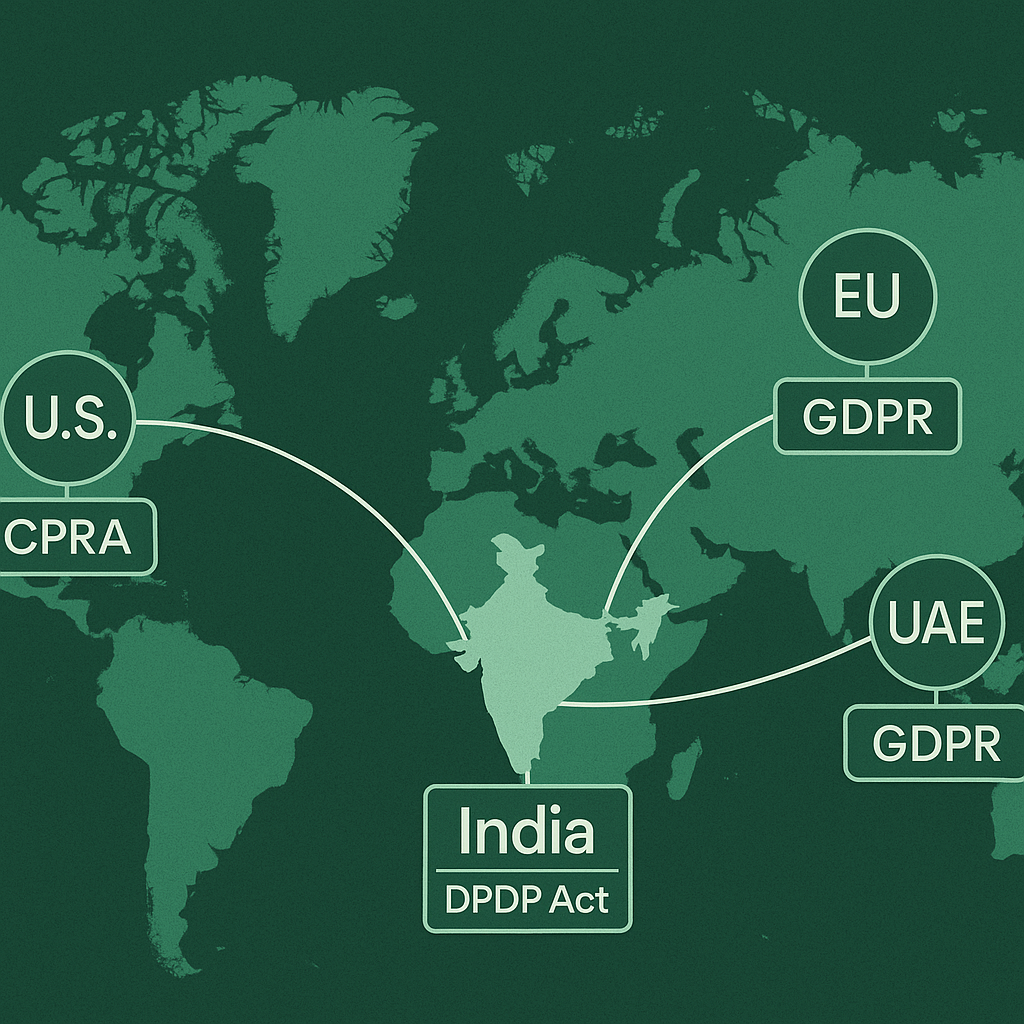
- A Silicon Valley SaaS company offering services to Indian users must follow both CCPA and DPDP Act.
- An EU-based healthcare startup operating in India must manage GDPR and DPDP standards simultaneously.
- A Dubai-based e-commerce platform storing customer data globally has to ensure lawful cross-border transfers.
How Startups and SMEs Can Align with the DPDP Act
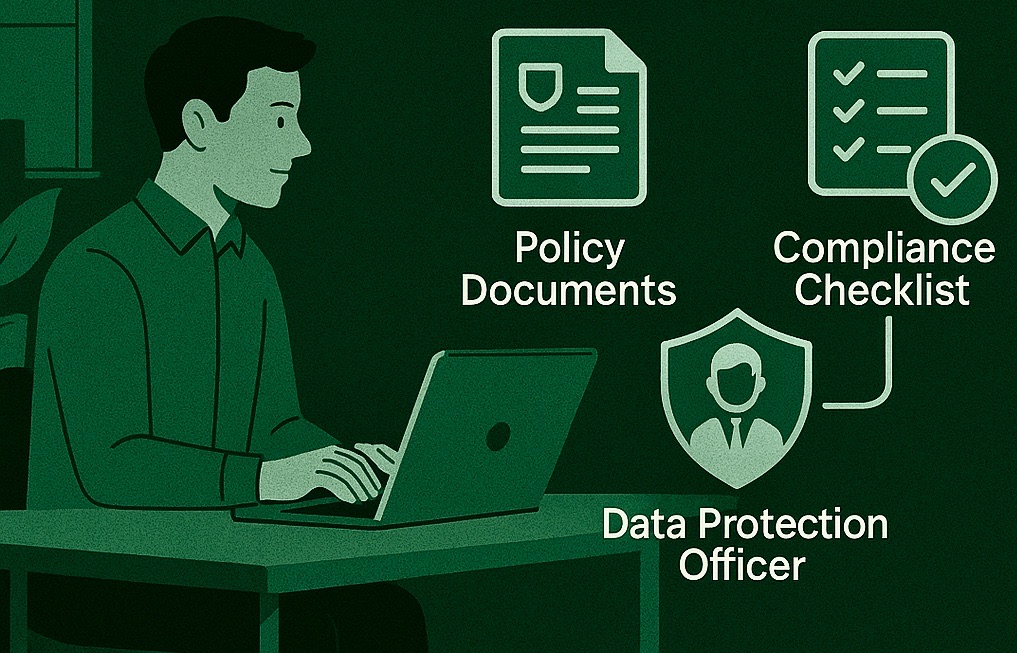
Small businesses and startups are often unsure how the Data Protection Act India affects their operations. Many Indian startups and global SMEs falsely assume data protection laws are only for tech giants. In reality, the DPDP Act applies to any entity processing digital personal data—including cloud-based services, marketing firms, HR platforms, and even consulting agencies.
Here’s how smaller businesses can adapt:
- Use template privacy policies provided by consultants or regulators
- Maintain a consent log or audit trail using low-cost SaaS tools
- Train staff with simple data handling SOPs
- Outsource compliance audits to legal advisors quarterly
- Designate an internal team member as a grievance officer, even if not formally a DPO
Future-Proofing Data Compliance in a Post-2025 Landscape
The Indian government is expected to notify approved countries for cross-border transfer under DPDP soon, similar to GDPR’s adequacy regime. Meanwhile, U.S. states are passing their own privacy laws, creating a fragmented compliance environment.
Companies should now:
- Integrate automated consent tools
- Conduct Transfer Impact Assessments for each region
- Invest in data minimization and encryption practices
- Stay subscribed to updates from regulatory bodies like MeitY and CERT-In
LexNova Insight: Compliance Is a Legal and Business Priority
“The Data Protection Act India isn’t just a regulatory update—it’s a business continuity safeguard. Fines, loss of reputation, and client distrust can be devastating. We help you build scalable compliance structures that evolve with law.”
LexNova Consulting provides:
- Region-specific data audit frameworks
- Policy localization for India, U.S., EU
- DPO support and incident response templates
- Training modules for HR and product teams
The Data Protection Act India is more than just policy—it is now central to global business compliance.
LexNova Compliance Checklist
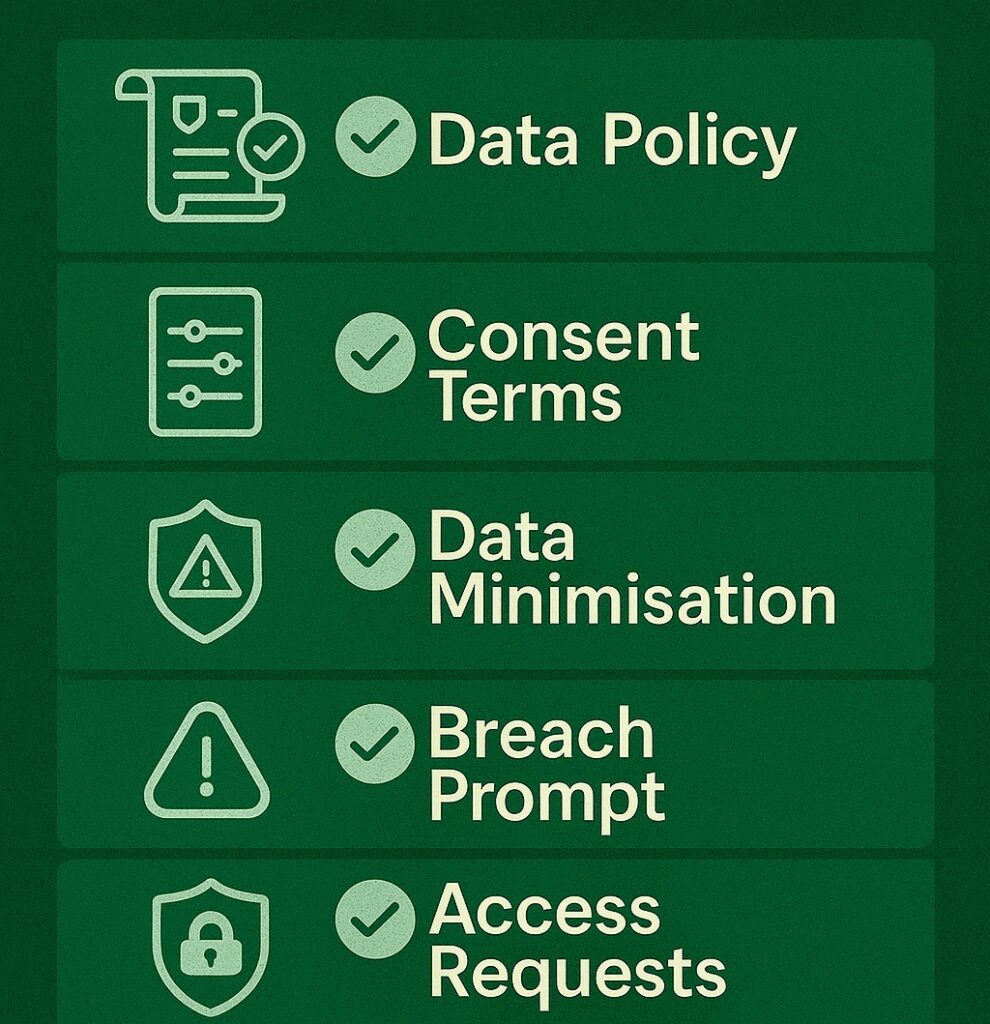
✅ Map global data flows
✅ Build jurisdiction-aware consent systems
✅ Create breach response protocols
✅ Assign grievance officers or DPOs
✅ Review third-party contracts regularly
✅ Prepare transfer assessments in advance
Read Also from LexNova Consulting
- TAKE IT DOWN Act: U.S. Deepfake Law Explained
- Where to Incorporate Your Startup in 2025
- Foreign Law Firms in India: What BCI’s New Rules Mean
References
Digital Personal Data Protection Act, 2023 – MEITY PDF
General Data Protection Regulation (GDPR) – EU Portal
Meta Fine – Data Protection Commission Ireland
Puttaswamy v. Union of India – Indian Kanoon
Contact LexNova
Ready to build legally strong, globally compliant data protection systems?
Disclaimer: This article is intended for informational and comparative purposes only and does not constitute legal advice. For case-specific guidance, please consult a qualified legal professional.

